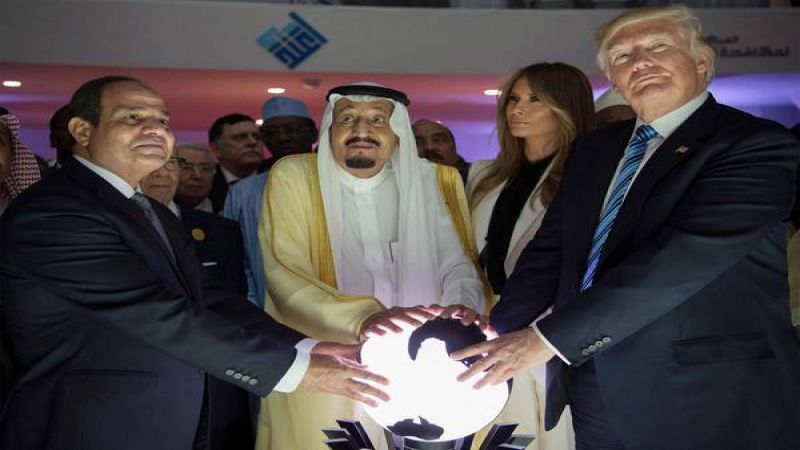
Local Editor
Saudi Arabia under its new leadership is "possibly the most dangerous and destabilizing influence in the Middle East today", according to Gary Sick, a professor at Columbia University and analyst of Middle East affairs, who is currently visiting Italy. Sick said US President Donald Trump, whose first foreign visit as president was to Riyadh, "has not really followed any particular strategy in his Middle East policies" but rather his policy-making is a "mixture of personal gut instinct, an attempt to fulfill promises made on the campaign trail, and conscious efforts to undo any and all of Obama's legacy".
As an example of Trump's expanded alliance with Saudi Arabia and the United Arab Emirates, Sick cited the situation with the Houthi revolutionaries in Yemen, a cause which he said Trump has "embraced with much more enthusiasm and lack of criticism" compared to Obama. He cited a UN team of experts who said the Saudi coalition in Yemen is experiencing a "stalemate" and said the Saudi bombing campaign there has hit a significant percentage of civilians targets, left 10,000 dead, and led to "the worst cholera outbreak in the world, affecting over 500,000 people, over half of whom are children".
Riyadh's offensive against Qatar - based on what Sick called "a long-standing dynastic dispute between Qatar and Saudi Arabia" - also risks damaging US interests.
"The unprecedented attempt to punish and isolate Qatar has resulted in a possibly permanent split in the Gulf Cooperation Council - with Saudi Arabia, the UAE and Bahrain on one side, and Qatar, Oman on the other - and Kuwait stranded in the middle," Sick said.
He said US security policy has "always tried to encourage the Gulf Cooperation Council to act as a single entity" but "that may now be an impossible dream".
Regarding the conflict in Syria, Sick said the US and Arab Gulf states who supported government opposition forces were the "losers" in the affair, after conventional wisdom foresaw a quick end to the conflict at its start.
He said those who foresaw a longer conflict were correct, "even though no one foresaw the significant military input from Iran, Hezbollah and ultimately Russia".
"Today we can say with some assurance that Assad has won, even if the civil war itself may go on for years to come," Sick said.
In the conflict, the Kurds showed their ability to fight and hold territory, but only Israel backed the recent independence referendum for Iraqi Kurdistan. Sick called ISIS "the biggest loser of all, whose caliphate is shrinking daily" but said it isn't clear "how the United States and Russia will work out their relationship" following this almost total military defeat of ISIS.
Sick said Iran represents "the area of greatest change in US policy since the election of Donald Trump", especially as regards Trump's political stance against the Joint Comprehensive Plan of Action (JCPOA), commonly known as the Iran nuclear deal.
The decision on the deal now lies with the US Congress, which Sick said could bring various options, including reimposing sanctions that were lifted by the agreement, taking no action (possibly leading to a unilateral decision by Trump to withdraw from the agreement), or passing a bill with new guidelines on issues outside the scope of the nuclear agreement, for which Sick said cooperation within Congress would be "highly uncertain".
"Unilateral withdrawal would trigger a set of dynamics that could affect the security of the Middle East and the rest of the world for decades to come," Sick said.
He said if the US is non-compliant with the terms of the JPCOA, "the onus will be squarely on us for walking away from an agreement that is almost universally recognized as the most successful and far-reaching arms control agreement ever negotiated".
Sick said he believes Trump will most likely "use the Congress as leverage to get the Europeans and others to consider new pressure on Iran on non-nuclear issues".
Sick expressed concern regarding the presence of military generals at the head of government "who learned their politics on the battlefields of Iraq and Afghanistan" and concluded by stating there is "reason to be concerned".
"As citizens and scholars we are entitled to expect of our governments a degree of seriousness, competence and responsibility that respond to the trust we place in them by our votes," he said.
Source: News Agencies, Edited by Website Team